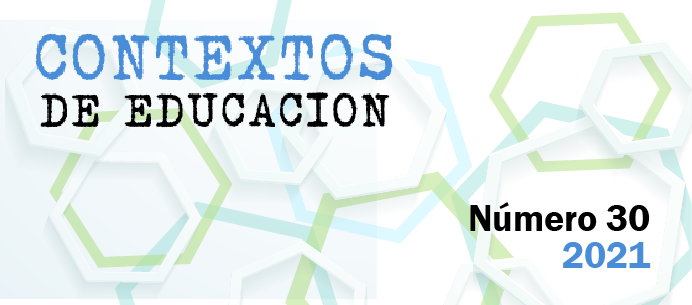Project R.E.D. Inhabiting the technological possibilities at school
Keywords:
Digital educational radio, educational podcasts, curricular transversalityAbstract
The Educational Radio constitutes a communication channel that allows the production and reproduction of ideas and / or realities, personal, socio-community-cultural, in order to enable students and the educational community in general to have personal and permanent contact. with the reality that surrounds and constitutes them. In this framework, it seeks to promote the plurality of voices that enable new links, new meeting spaces, offering multiple access routes to local, regional and / or national scientific-cultural knowledge; deepening democratic processes in the institutional daily routine of the school. Thus, we can affirm that the production process of the different spaces of a school radio is not a task that can be carried out in a solitary way, but on the contrary, it is a challenge to face with cooperative work dynamics between student pairs, teachers and community in general; a tool that offers various possibilities to enrich, color and strengthen pedagogical practices and, therefore, contribute to the consolidation and care of the school careers of our students. The RED Project was born with this perspective in 2013, re-emerging in this Covid-19 health emergency situation, forming a team of people, who through their research, their artistry, their ways of seeing reality and their ways of telling it, seek to know and valuing the socio-cultural, historical and present aspects of our local, regional and / or national society in order to form the necessary networks to study and cultivate it, and consequently, obtain greater inclusion and social equity.
ARK CAICYT: http://id.caicyt.gov.ar/ark:/s23143932/smnseqiog
References
Grimson, A y Tenti Fanfani, E. (2014) Mitomanías de la educación argentina. Critica de las frases hechas, las medias verdades y las soluciones mágicas. Buenos Aires, Argentina: Siglo XXI.
Morin, E. (1999). La cabeza bien puesta. Buenos Aires, Argentina: Nueva Visión.
Morin, E; Roger Ciurana, E. y Motta, R. (2002). Educar en la era planetaria. Valladolid, España: Editado por Unesco. Recuperado el 16/08/2016 de: http://bibliotecadigital.educ.ar/uploads/contents/M-Netbooks.pdf
Noro, J. (2000). Escuela posible. Educación necesaria. Rosario, Argentina: Didascalia.
Tenti Fanfani, E. (2004), Notas sobre la escuela y la comunidad. En Ferreyra, H. A.; Maine, C. A. y Vidales, S. N. (2015). Reflexiones sobre la calidad de la educación secundaria argentina: La escuela posible como horizonte de expectativas. Tomo I. (90-91). Libro. Buenos Aires, Argentina: IIPE-Unesco.
Terigi, F. (2010) Las cronologías de aprendizaje: un concepto para pensar las trayectorias escolares. Conferencia de apertura ciclo lectivo. 23 de Febrero de 2010. La Pampa. Argentina. Recuperado en marzo del 2015 de http://www.chubut.edu.ar/concurso/material/concursos/Terigi_Conferencia.pdf
Downloads
Published
Issue
Section
License
Política propuesta para revistas que ofrecen acceso abierto
Aquellos autores/as que tengan publicaciones con esta revista, aceptan los términos siguientes:- Los autores/as conservarán sus derechos de autor y garantizarán a la revista el derecho de primera publicación de su obra, el cuál estará simultáneamente sujeto a la Licencia de reconocimiento de Creative Commons CC BY-NC-SA 2.5 AR que permite a terceros compartir la obra siempre que se indique su autor y su primera publicación esta revista.
- Los autores/as podrán adoptar otros acuerdos de licencia no exclusiva de distribución de la versión de la obra publicada (p. ej.: depositarla en un archivo telemático institucional o publicarla en un volumen monográfico) siempre que se indique la publicación inicial en esta revista.
- Se permite y recomienda a los autores/as difundir su obra a través de Internet (p. ej.: en archivos telemáticos institucionales o en su página web) antes y durante el proceso de envío, lo cual puede producir intercambios interesantes y aumentar las citas de la obra publicada. (Véase El efecto del acceso abierto).

